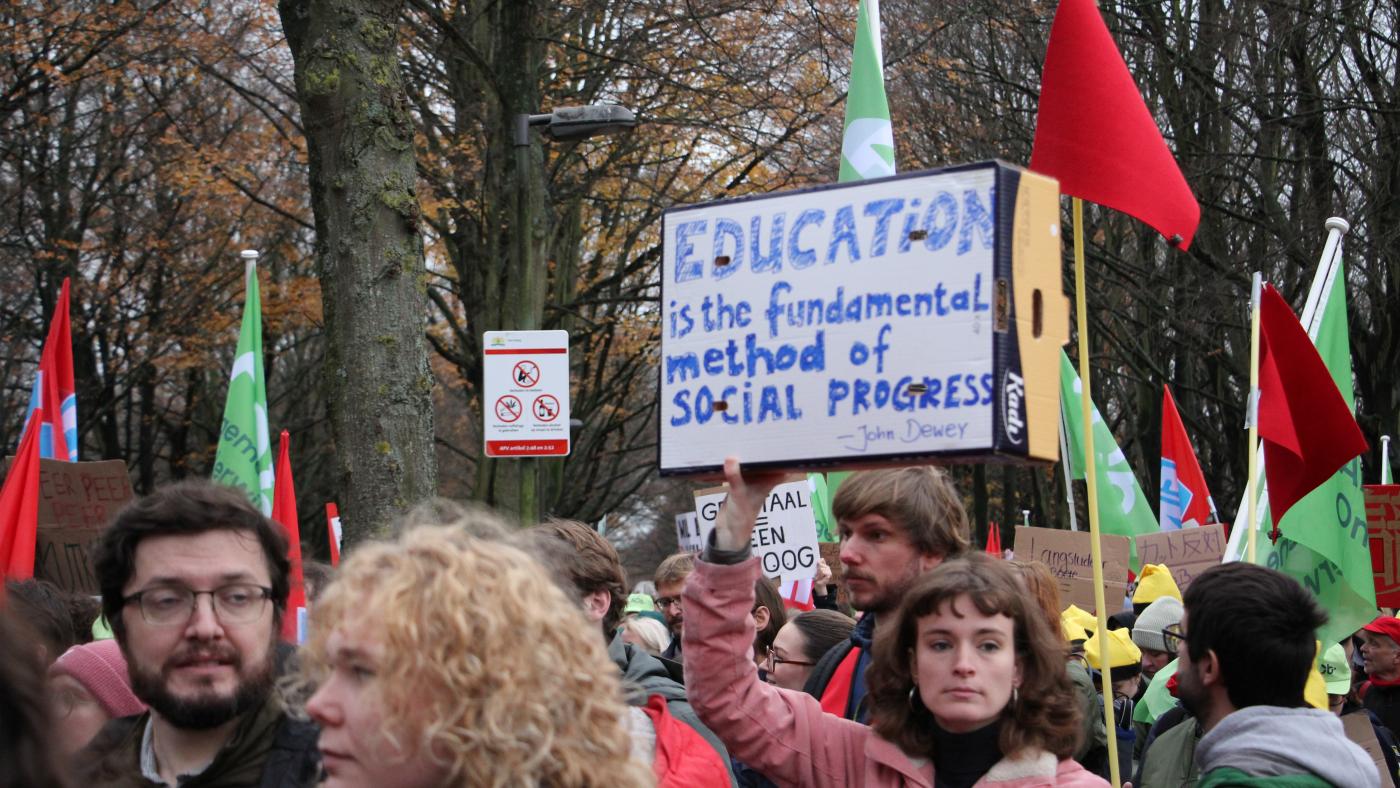Panel discussion about the budget cuts
‘Students are the future, but they are being sidelined’

The austerity measures will affect hundreds of thousands of students and tens of thousands of employees at higher education institutions. The research group Becoming Adults in a Changing World (BACW) hopes that the online debate will contribute to a broader understanding of how policy choices affect the wellbeing and development of young people.
An unjustified political choice
The three panellists agree that the budget cuts are unjustified. ‘Other countries see education as an investment, not as an expense,’ says Luuk Bruijnen, chair of the Utrecht student union, Vidius. He sees how the austerity measures are affecting students, both as a student and as the chair of the organisation. ‘Such uncertainty causes a lot of stress. Students are the future, but we are being sidelined without any consideration.’
Bald de Vries, Professor of Interdisciplinary Legal Education at UU, adds: ‘Politicians act as if budget cuts were inevitable, when that's a political choice. The government could have made a different choice. This is also about the message the government is sending about the value of education, something that could cause us problems in the long run.’
Martijn Kleppe, Deputy Director of the Royal Library, agrees with Bruijnen and De Vries, though he advocates a pragmatic approach. ‘When you work in education, you are often confronted with political choices. That's just a fact we must deal with. Therefore, we must also ask ourselves how we can deal with such changes in the best way possible.’
Inequality of opportunity
When asked to what extent the budget cuts will increase the inequality of opportunity, Vidius chair Luuk Bruijnen says: ‘The quality of education will decline, forcing students to spend more time studying by themselves, which will come at the expense of part-time jobs. Students whose parents can help them financially will therefore have a better chance of success.’
This inequality of opportunity may also manifest itself in access to AI tools, adds Bald de Vries. ‘Some students have the means to purchase the right tools. They can work with better products than the students who can't count on financial support.’
Martijn Kleppe argues that government policy should not only focus on formal learning, but also on informal learning outside the traditional channels. ‘I believe in the concept of lifelong learning, which is why I don't expect the budget cuts in formal education to have an immediate impact on inequality of opportunity. Fortunately, the government has been investing more and more in informal learning, although it is still too little and it comes at the expense of the wrong things.’
Resistance and adaptation
Now that the Senate has approved the budget, the austerity measures are coming for sure, which raises the question whether academia should take a pragmatic approach, adapting to the new policy, or resist. The panel members conclude that the way forward is a combination of both.
‘We must continue with our strikes and activism because we know it works. That's how we've managed to make the government give up on the idea of introducing a fine for students who take longer than one additional year to graduate. That's how we've managed to make them bring the basic student grant back. At the same time, we must ensure that students remain involved in the decision-making and assessment processes regarding the budget cuts,’ ponders Bruijnen.
Kleppe agrees with Bruijnen that it is important to keep the dialogue going. He underscores that academia is often isolated from society at large and argues that this is one of the underlying causes of the austerity measures. ‘Campaigning helps in the short term, but we also need to engage with society in the long term.’
De Vries agrees and emphasises that UU's updated education model has incorporated this into the policy. For example, the university will now encourage community-based learning, an approach that focuses on learning in and with society. He also believes that the budget cuts should not affect student support. ‘Universities have an educational mission, which means they should make students feel at home in their programmes and support them through mentoring and other measures. When redistributing funds, we must ensure that students are not left to languish in their student rooms.’
Lack of perspective
The tone of the debate is critical but constructive. Strikingly, an important voice is missing from the debate: that of politicians. The Ministry of Education, Culture and Science and youth organisations of political parties both declined an invitation to participate in the panel. Apparently, they did not want to get burned on this sensitive issue.
That says it all, argues De Vries. ‘Minister Bruins should be able to explain this policy with a solid argument. But he doesn't. He just implements it, which is very frustrating.’